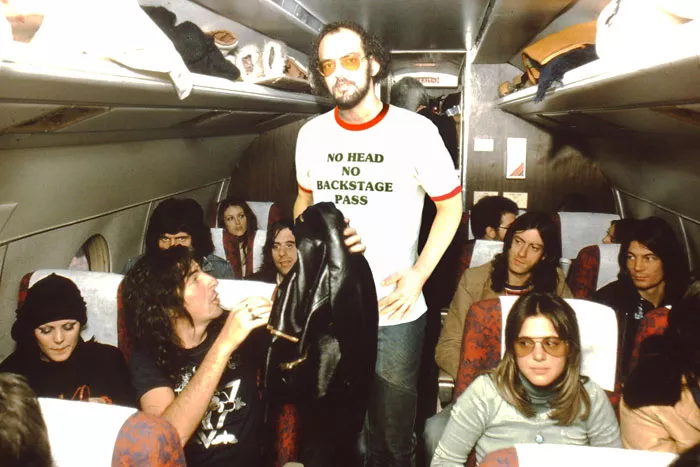Supermensch: The Legend of Shep Gordon | C-
Bathed in the light of a Pacific Ocean sunset, lounging on a hammock in the in the back yard of his Maui bachelor pad, talent manger Shep Gordon surveys his surrounding like a master of the universe. He has many reasons for his ample self-regard, having spent his life building the careers of such diverse musical artists as Alice Cooper and Teddy Pendergrass, French master chef Roger Vergé and even Groucho Marx, and he helped make all of them, and himself, very wealthy. Gordon’s roster of former clients, celebrity pals, and past lovers sometimes seems a bit like the guest list at a Vanity Fair post-Oscar party, and a great deal of these famous friends line up here to sing the praises of the man who, through his ineffable wisdom and chutzpah, has made them all a great deal of money. Star after star, from Sylvester Stallone to Michael Douglas to Creole cooking magnate Emeril Lagasse, all seem eager to bask in the glory of Gordon, a big, warm gregarious character, who is unusual only in that everyone in showbiz seems to genuinely like him.
One of the man’s most ardent admirers is SNL vet Mike Myers, who crashed in Shep’s guest room during a particularly dark period in the comedian’s life, and Myers has repaid that generosity by directing an endlessly fawning tribute to Gordon, not just recounting his life, but showering him in glory and stopping just inches short of full beatification. Myers gazes in perpetual awe at his subject, sitting and soaking in the stories of sex, drugs, and hard-living debauchery with the wide-eyed glee of a child sitting on the knee of a favorite uncle.
In fairness, Gordon does have some delightful stories to tell from a long run in showbiz, even if those stories somehow always bend toward self-congratulation.
After the requisite humble beginnings back East, Gordon ambled his way into Hollywood in the late ’60s, and he recalls a tale of getting punched by Janis Joplin at a pool party, and then meeting Jimi Hendrix, who encouraged the lanky, slightly dorky Shep to get into talent management. His first client was shock rock innovator Alice Cooper, who rose to fame through a combination of talent, stagecraft, and a string of very canny PR stunts. Gordon moved Cooper back to his native Detroit, where hard-rock-obsessed audiences ate up his mix of glam rock, gender-bending, monster hooks, and sinister, comic book mysticism. Of interest for Detroiters of a certain vintage is the mention of CKLW 800 AM, the Windsor station that was once a musical powerhouse, and which helped push Alice’s breakthrough hit “I’m Eighteen,” mostly because it was recorded in Canada and therefore fulfilled a government mandate for “native content.”
One of the most infamous incidents in the Cooper mythos occurred at the Toronto Rock and Roll Revival in 1969 where, as an opening act for John Lennon and Yoko Ono, the proto-goth rocker tossed a live chicken into the crowd, which promptly tore the poor bird to pieces and hurled the bloody remains back at Alice, who basked in the carnage. Nearly a half-century later, Gordon takes unabashed joy in pointing out that he was the one who brought a chicken to the rock concert on purpose.
The manager used less grisly but equally effective techniques in promoting snooze-rocking Canadian siren Anne Murray, proving that his genius for publicity was legit.
As entertaining as Gordon’s adventures in the music industry are, Supermensch is far less successful in explaining why we shouldn’t just be watching a movie about the performers he managed. Gordon recounts everything with a soothing but mildly scratchy baritone that is equally charming when he discusses his deep personal relationships with Sharon Stone and the Dalai Llama. Shep’s tone of faux humility and the vocalized disdain for fame ring pretty hollow for a guy staring directly into a camera lens.
That camera lovingly embraces the grinning, frizzy-domed impresario, as he recounts the varied, often ingenious tricks he used to boost the profiles of his clients, but the film never once pauses to consider if Gordon’s knack for media manipulation doesn’t extend to manipulating everyone in his personal sphere. Such questions, or really any sort of investigation, would be better suited to an actual bit of documentary filmmaking, instead of the extended infomercial that Supermensch turns out to be.
Supermensch is rated R, runs 84 minutes, and is playing in theaters now.


